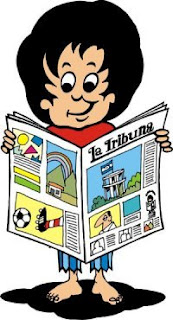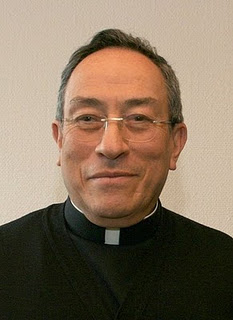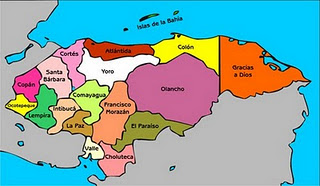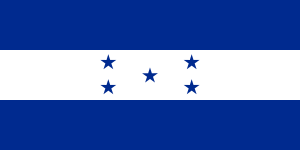“Was it a coup or not?”. This is a question I ask myself many times, especially since Zelaya’s supporters never get tire of branding us as “coupsters” every time they have the chance, to those of us who support the outcome of 28 June, when president Zelaya was ousted and expelled from Honduras.
I must admit that the legality of what happened is uncertain. It would have been better to proceed with a legal process against Manuel Zelaya without any apparent irregularity, but my reaction since Zelaya was ousted was a warm endorsement.
The political crisis did not begin, as many say, on June 28, but with a growing confrontational attitude of President Zelaya which threatened to reach intolerable levels.
It seems clear that the real reasons behind the removal of Zelaya were not legal technicalities or the corruption of his government, not even his violation of the Constitution (in previous governments there was also corruption and violations of the Constitution). Zelaya was expelled for creating the threat of a Chavista regime which would destroy the existing constitutional order replacing it with a system of concentration of powers in the figure of a caudillo, and the possibility of permanent re-election of the caudillo by way of electoral fraud (The caudillo being Zelaya himself).
The intended use of the referendum only served to legitimize the dictatorial ambitions.
The strategy followed to halt this authoritarian project was to invoke respect for the law. However, the illegal procedure that was used to oust Zelaya clouded that claim of respect for the law. It was denounced the contradiction of defending the law through the violation of it.
But one can argue that a rational application of the law needs to use a hierarchy of legal and ethical principles, and it is sometimes necessary to choose between a greater evil and a lesser evil.
The expulsion of Zelaya was a crime, but it was through that crime that the current legal order was saved. This would not be the case had Zelaya fulfilled his intention to convene a Constituent Assembly, and to dissolve the Congress and the Supreme Court. This is a case analogous to the principle of self-defense in criminal law. In expelling Zelaya the system acted in self defense for its own self-preservation.
The ideal thing would have been to judge Zelaya within Honduran territory, but with him imprisoned there was the danger of more violence and deaths.
A coup without breaking the constitutional order
When a coup d’Etat is perpetrated the constitutional order is lost, the legislature and judiciary branches are dissolved to make way for a government of force.
This has not happened in Honduras at the moment. Here the constitutional order with its three branches structure remains intact.
All we have is a controversy over the legitimacy of the current holder of the executive branch.
However, we hear over and over the claim that in Honduras the constitutional order was broken by a coup d’Etat. This falsehood, which is often being promoted in a malicious way, is somewhat an understandable misunderstanding because there is no historical precedent for the presidential succession that occurred in Honduras. This explains the misuse of the concept of coup d’Etat, which was used in the context of the violent takeover of power by the military in Latin America.
Article 239
Article 239 of the Constitution forbids the president’s reelection, and states that any public official attempting to reform this Article ceases to hold office immediately. Based on that article it is said that Zelaya was no longer president when he was expelled from the country, so that the presidential succession that took place was perfectly legal, despite the fact that the removal of Zelaya was illegal.
The problem with this interpretation is that Zelaya was careful to not openly express his intention to allow re-election in the new Constitution.
The strongest public statement that Zelaya made to that effect was one in which he mentioned that other State officials could exercise their functions for various terms, and that the issue of presidential re-election will be the subject of the upcoming Constituent Assembly.
The intention of allowing presidential reelection was clear, although the lack of an explicit statement of this purpose produces doubts in the use of Article 239 to justify his ouster.
If Article 239 is not applicable, this suggests that Zelaya is still the constitutional President of Honduras, despite his attempts to destroy the present legal order, and that Micheletti is an usurper of the presidential functions.
However, there is an alternative interpretation that says that at the time the arrest warrant against Zelaya was given there was a power vacuum that needed to be filled by a presidential succession.
Both theories are questionable and in order to clarify whether the replacement in office was legal or not, it is necessary to solve it through a trial. Ideally, Zelaya would come to Honduras to face justice over the allegations made against him. This would clarify definitively whether the current President in office is legitimate or not.
The problem is that Zelaya seems unwilling to submit to the law, but remains committed to disown it. If Zelaya insists on ignoring the Honduran legal institutions he looses the right to hold the presidential chair, and has committed perjury, because in order to take up his duties he swore to uphold and enforce the Constitution and the law. Presidential powers are legitimate only within the constitutional framework, and by virtue of having undertaken to comply with that order. When he rebels against that framework he has no right to remain president.
Anyway, whether the presidential substitution occurred on June 28 was legally justified or not, is a fait accompli and the return to power of Zelaya is not politically feasible, despite international pressure to reinstate him. The next presidential elections we will give a new president-elect free of suspicion about his legitimacy, as the electoral process is developing properly, and this despite threats from other countries to ignore the outcome of the elections.



